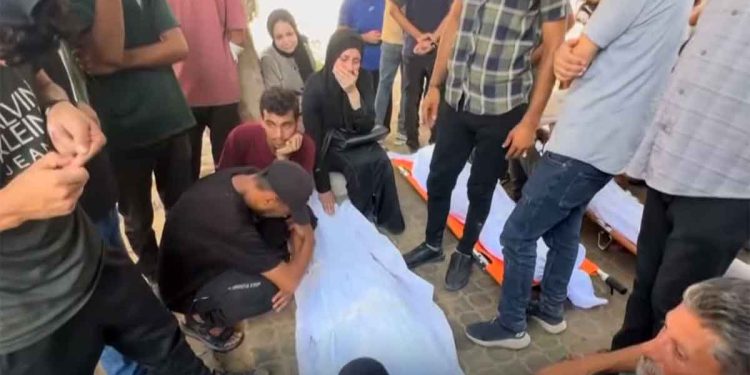A Palestinian woman was killed on Friday after being targeted by an Israeli drone in the northwestern area of Gaza City, in yet another violation against civilians in the besieged Strip in violation of the declared ceasefire agreement.
According to eyewitnesses and local sources, Maisaa Jaber Al-Attar was directly hit in the Al-Atatra area, one of the zones that has witnessed frequent drone activity since the war officially ended, creating a constant state of fear and insecurity among residents.
Since the ceasefire was announced on 11 October, approximately 260 people have been killed and over 630 injured in separate incidents that underscore the continuation of military operations in civilian areas, a clear breach of de-escalation commitments and fundamental international norms meant to safeguard civilian life.
The ceasefire followed a devastating war launched by the occupation on 8 October 2023, which lasted two years and resulted in the deaths of more than 69,000 civilians and injuries to over 170,000. Around 90% of Gaza’s civilian infrastructure, including healthcare, education, housing, and essential services, was destroyed.
The killing of Al-Attar, like many similar incidents, raises fundamental human rights concerns regarding the occupying state’s adherence to international humanitarian law, which obliges all parties to distinguish between civilians and combatants and prohibits disproportionate attacks likely to harm non-combatants. The targeted strike, carried out in a residential area by a drone with precision capabilities, suggests a blatant disregard for the principles of distinction and proportionality, cornerstones of civilian protection during armed conflict.
The continued loss of life during the ceasefire period highlights the absence of effective monitoring and accountability mechanisms. It reflects a culture of impunity that fosters repeated violations.
Given the widespread destruction and the lack of basic services, each new attack compounds the humanitarian crisis. Civilians have no functioning healthcare infrastructure to treat the injured, and safe transport is virtually non-existent, drastically reducing the chances of survival—even in treatable cases.
These repeated assaults by the occupation form part of a broader pattern of grave violations that demand serious international attention. Immediate steps must be taken to ensure civilian protection, hold perpetrators of such attacks accountable, and re-establish a minimum level of human security in a region where danger looms at every turn.



























